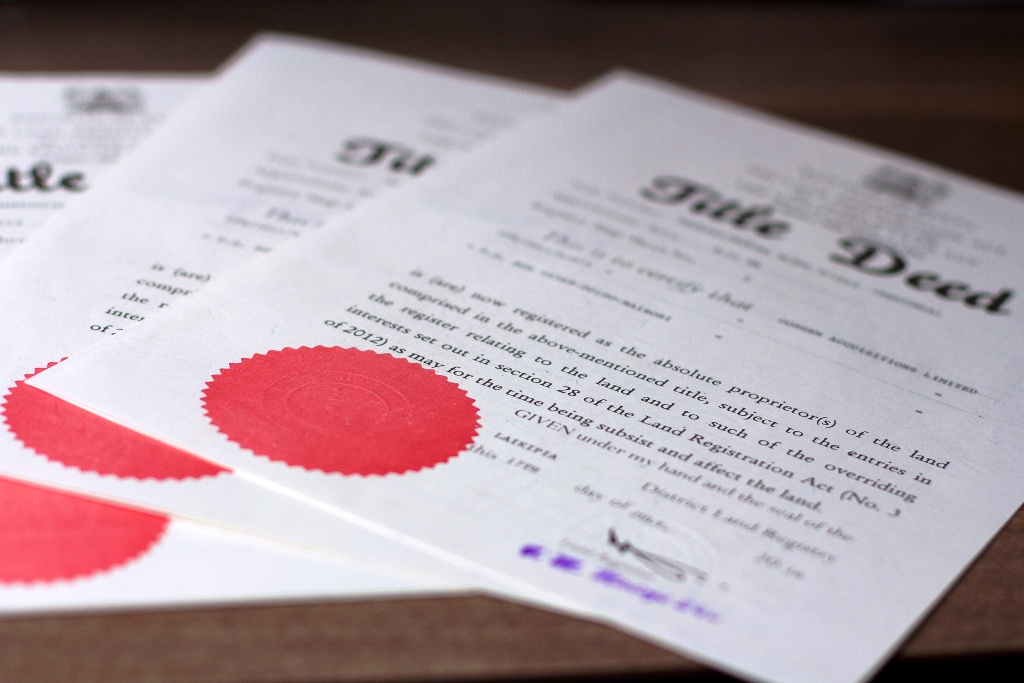In terms of the Deeds Registries Act (Chapter 20:05) the ownership of land may be conveyed from one person to another only by means of a deed of transfer executed or attested by a registrar. A deed of transfer is therefore prima facie proof of ownership by the person whose name appears therein. In other words, there is a presumption that the person whose name appears on the title deed is the owner of the land with the sole and exclusive rights to the same. In Takafuma v Takafuma 1994 (2) ZLR 103 (S) the court had this to say:
“The registration of rights in immovable property in terms of the Deeds Registries Act [Chapter 139] (now [Chapter 20:05]) is not a mere matter of form. Nor is it simply a device to confound creditors or the tax authorities. It is a matter of substance. It conveys real rights upon those in whose name the property is registered…”
The records for the registration of transfers are kept at the deeds office and people rely on these records to check on the ownership of land. Thus, in Machiva v Commercial Bank of Zimbabwe Ltd & Anor 2000 (1) ZLR 302 (H) it was held as follows;
“Generally speaking, members of the public are entitled to rely on the records held in the Deeds Office and to assume that such records reflect the position about land ownership and the burdens which may be reflected on the deeds of transfer. If the position were otherwise, the land registration system in the entire country would be a farce and the lending system in the financial sector would be thrown into chaos.”
There is a tendency by some purchasers to only demand the original title deed from the seller and not attend to the registration of transfer process for one reason or the other. Notwithstanding the fact that the purchaser is holding the title deed, the property remains that of the seller. This becomes problematic if the seller dies, disappears or does not cooperate. The purchaser may have to go to court and get a court order for the transfer to be registered. He/she will have to rebut the presumption of ownership and bear the legal costs which could all be avoided if registration of transfer had been attended to at the time of purchase.
A court order would also be required where the property is registered in the name of an agent or where the registration of transfer is fraudulent. In Machiva v Commercial Bank of Zimbabwe Ltd supra the court had this to say;
“The principle that registration of title is not conclusive proof of ownership does not cause me any difficulty at all. It is the applicability of the principle to the facts of this matter which I find questionable. The principle can only be of application in those cases where, for purposes of expediency, property is registered in the name of an agent or where the true owner agrees to have the property in the name of a spouse or where, for fraudulent reasons, the property is registered in the name of the wrong person or where the underlying cause for the registration aborts. It does not apply in a situation involving a buyer who has never taken transfer of title.”
The contents of this article are for general information purposes only and do not constitute our legal or professional advice. We accept no responsibility for any loss or damage of whatsoever nature which may arise from reliance on any of the information published herein.
Copyright © Marume & Furidzo Legal Practitioners 2024

